Find Help
More Items From Ergsy search
-
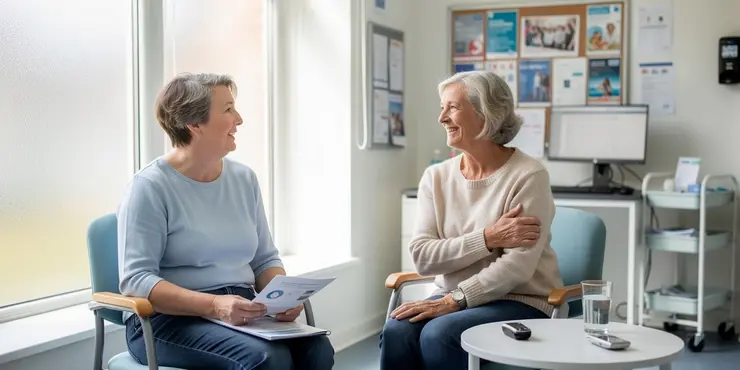
Sarah and Glinys Managing Diabetes into remission Jan2019
Relevance: 100%
-
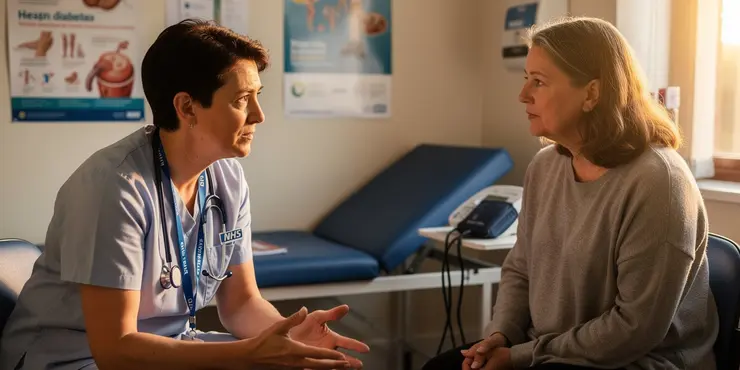
Can Type 2 Diabetes go away?
Relevance: 62%
-
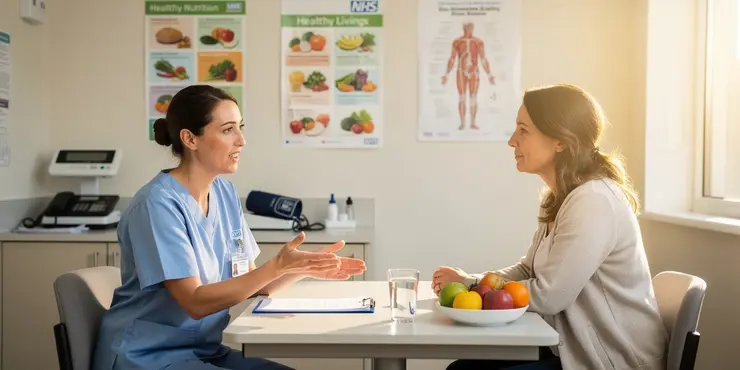
How to manage type 2 diabetes
Relevance: 53%
-

Type 1 Diabetes supporting adults to manage Type 1 diabetes
Relevance: 52%
-
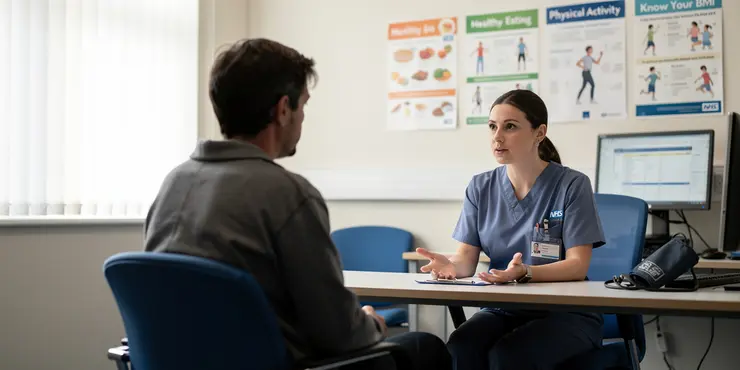
Is Wegovy used for type 2 diabetes management?
Relevance: 48%
-
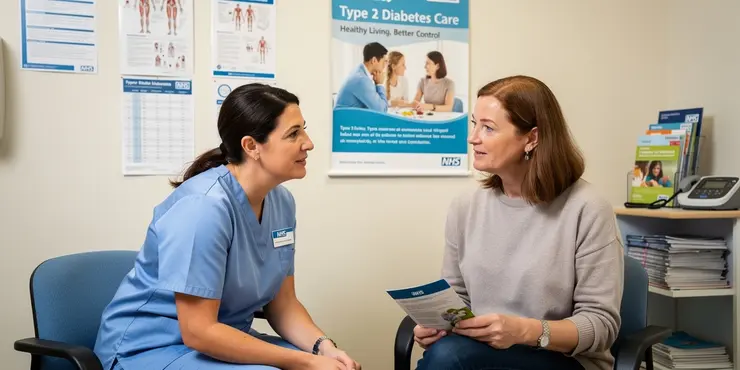
Where can I find support for managing Type 2 Diabetes in the UK?
Relevance: 47%
-
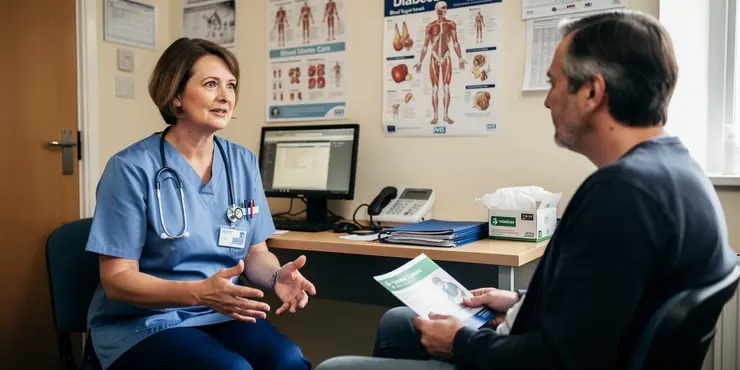
What role does GLP-1 play in diabetes management?
Relevance: 44%
-
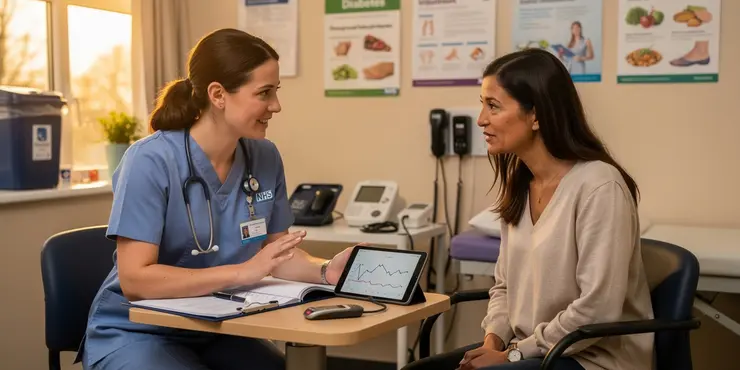
What Is Type 2 Diabetes? | 2 Minute Guide | Diabetes UK
Relevance: 43%
-
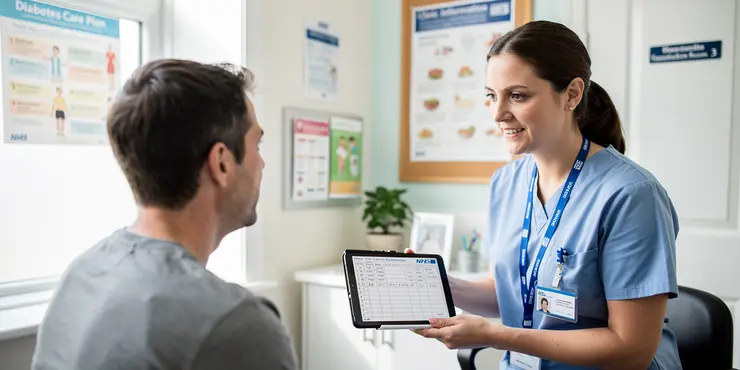
How is Type 2 Diabetes treated?
Relevance: 39%
-
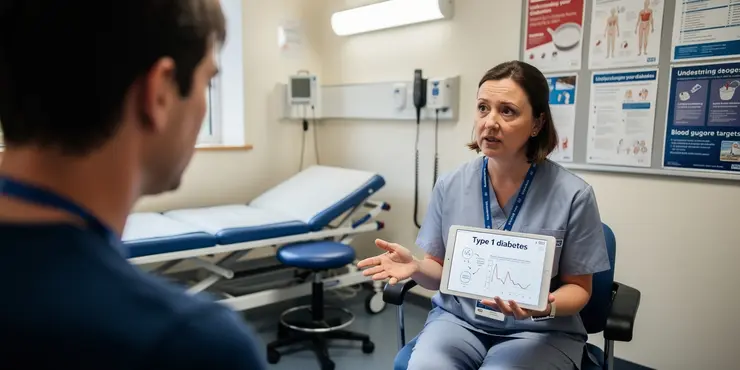
What is type 1 diabetes?
Relevance: 37%
-
What is type 1 diabetes?
Relevance: 37%
-
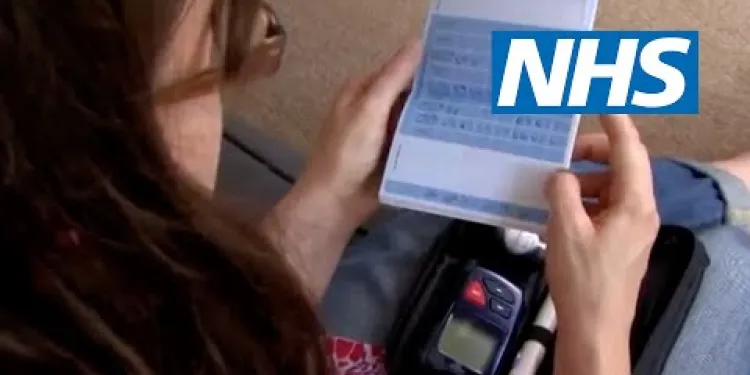
Gestational diabetes | NHS
Relevance: 36%
-
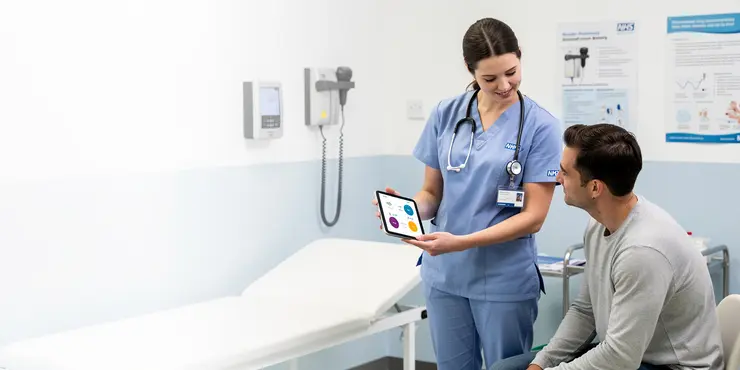
Improving outcomes for people with diabetes
Relevance: 36%
-
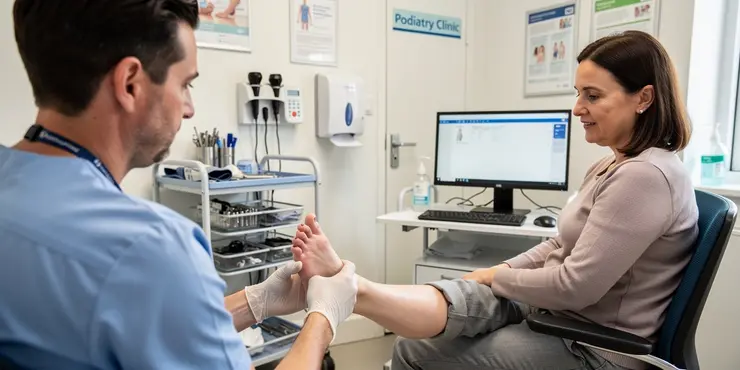
Diabetic Foot Conditions Podiatrist
Relevance: 35%
-
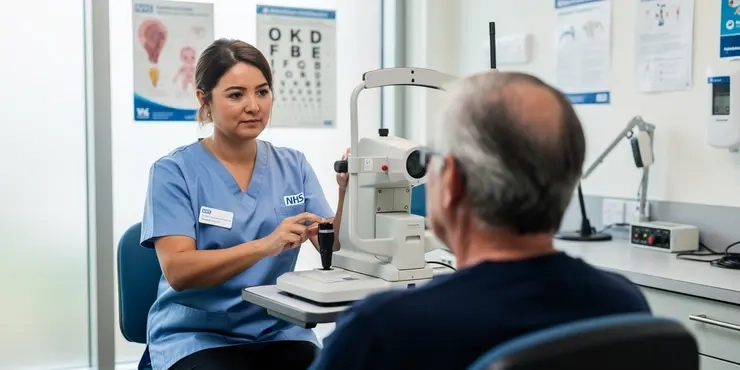
Derbyshire Diabetic Eye Screening - Diabetic Eye Screening
Relevance: 35%
-
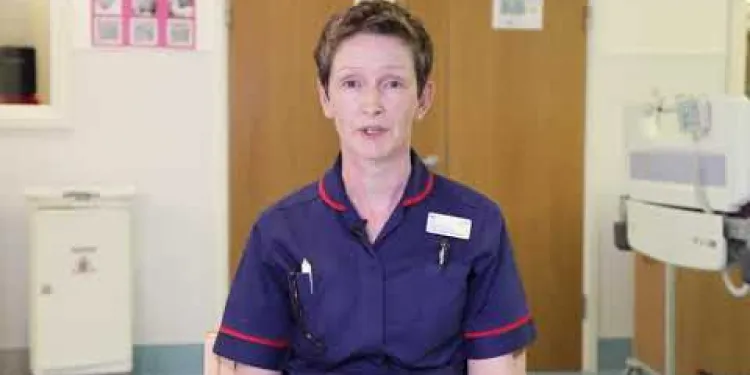
Gestational Diabetes during pregnancy
Relevance: 35%
-
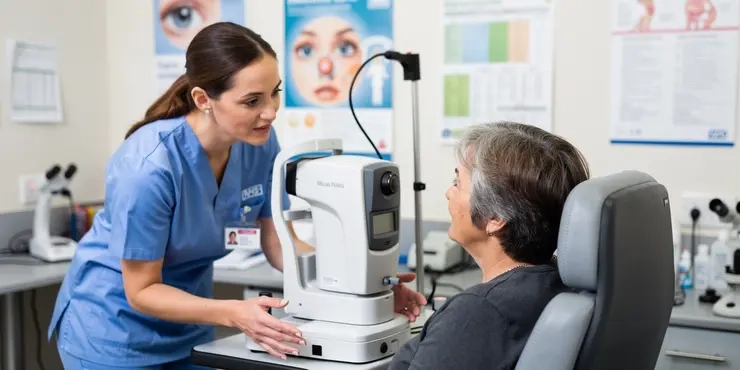
Diabetes Eye Screening
Relevance: 35%
-
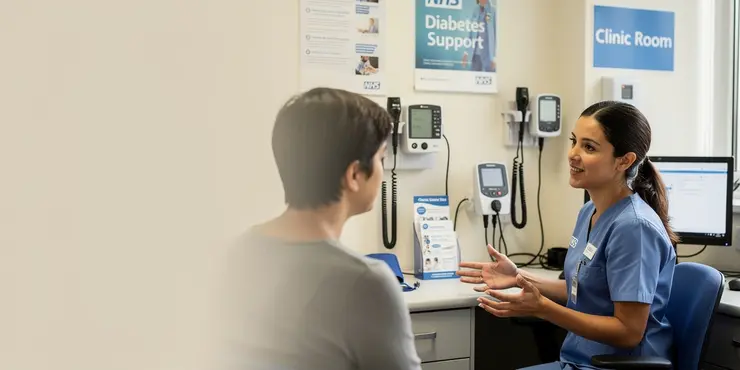
Is Type 2 Diabetes hereditary?
Relevance: 34%
-
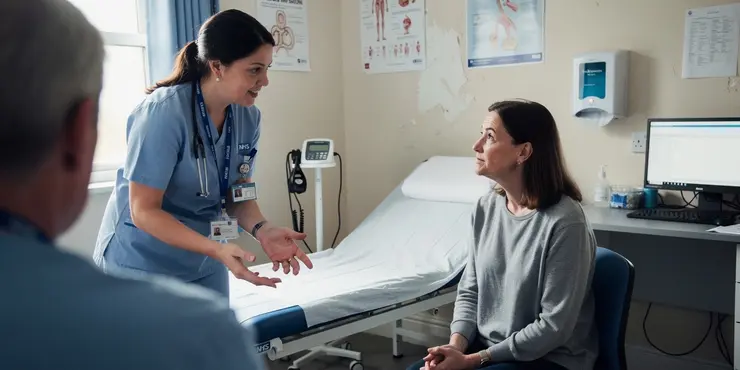
Can stress affect my Type 2 Diabetes?
Relevance: 34%
-
Is there a genetic predisposition to type 1 diabetes?
Relevance: 34%
-
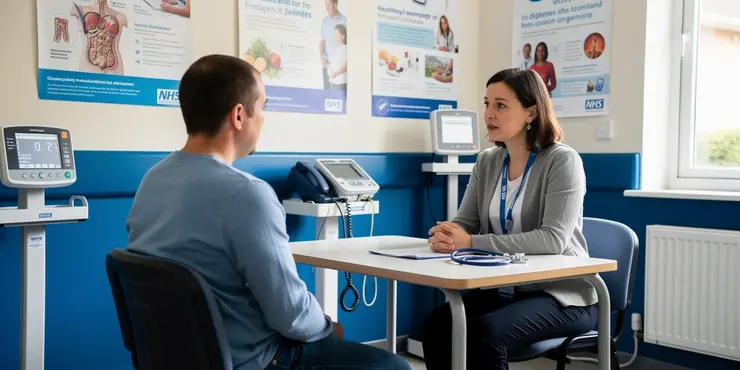
Is Ozempic suitable for type 1 diabetes?
Relevance: 34%
-
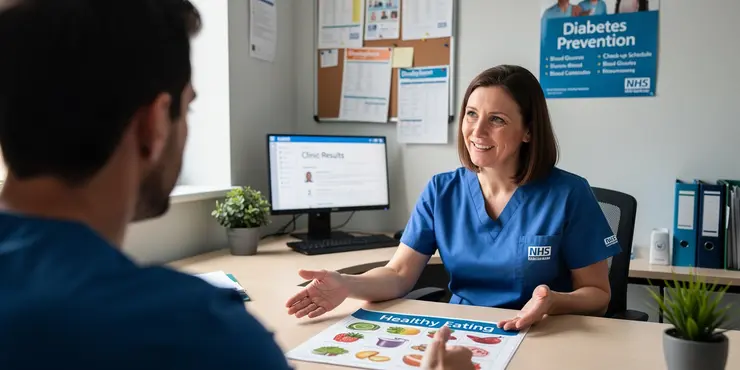
Can Type 2 Diabetes be prevented?
Relevance: 34%
-
What is Barbie Doll Diabetes?
Relevance: 34%
-
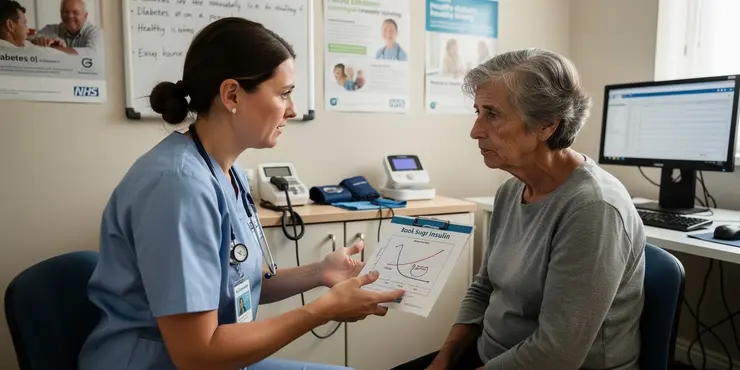
What is the role of insulin in Type 2 Diabetes?
Relevance: 34%
-
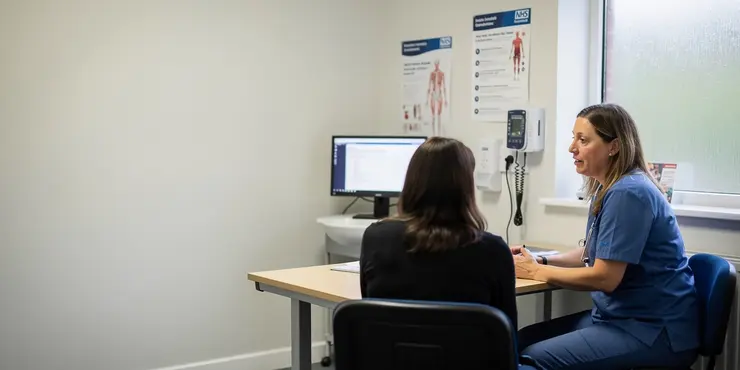
Is Teplizumab used to treat diabetes?
Relevance: 34%
-
Can I have sugar if I am diabetic?
Relevance: 34%
-
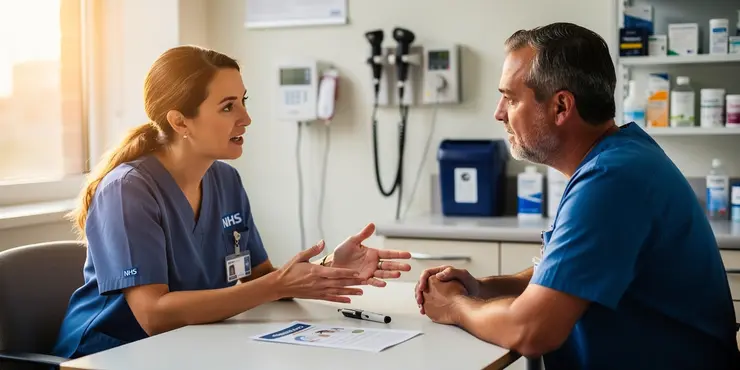
Can Mounjaro be used in type 1 diabetes?
Relevance: 34%
-
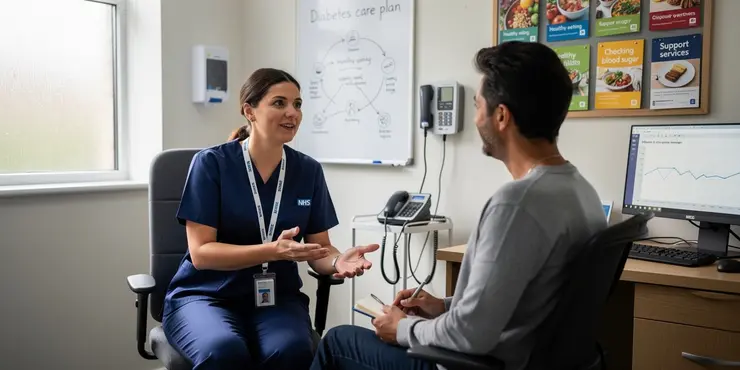
What complications are associated with Type 2 Diabetes?
Relevance: 33%
-
What is the difference between type 1 and type 2 diabetes?
Relevance: 33%
-
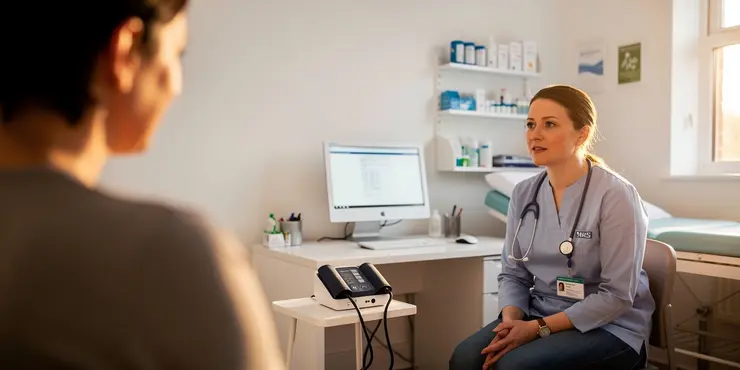
How is Type 2 Diabetes diagnosed?
Relevance: 33%
-
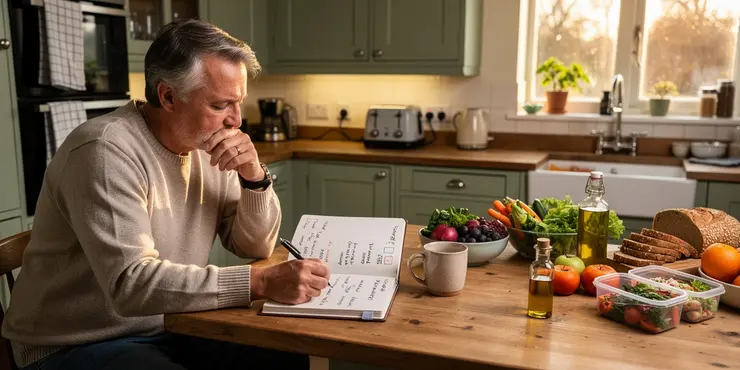
What causes Type 2 Diabetes?
Relevance: 33%
-
What support is available for families dealing with type 1 diabetes?
Relevance: 33%
-
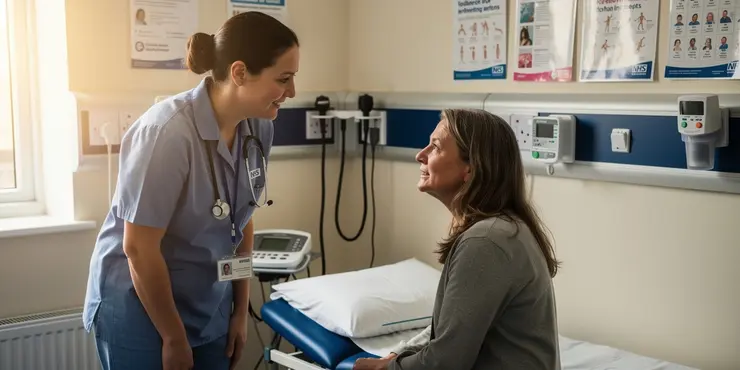
What are the symptoms of Type 2 Diabetes?
Relevance: 32%
-
What are the benefits of early detection of type 1 diabetes?
Relevance: 32%
-
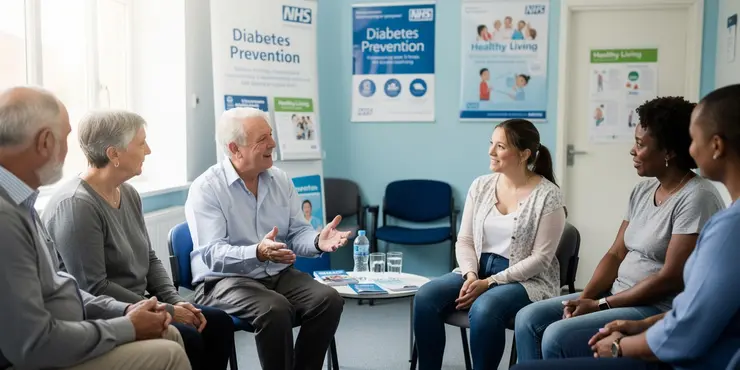
NHS Diabetes Prevention Programme; Preventing Type 2 and improving outcomes for people with diabetes
Relevance: 32%
-
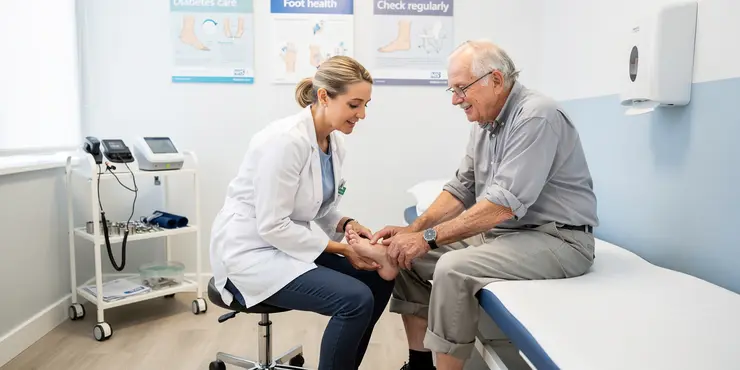
Diabetes Care - Preventing Amputations
Relevance: 32%
-
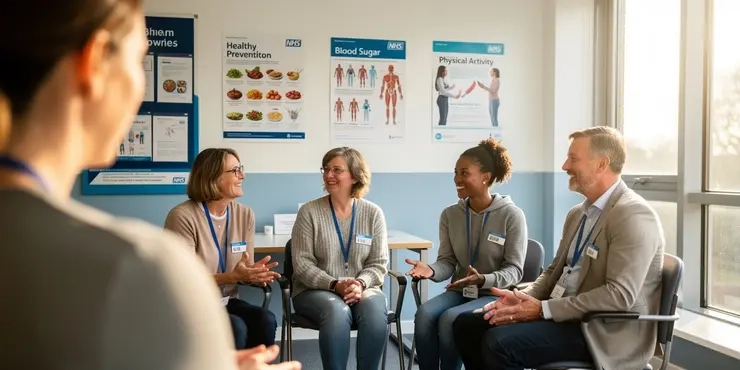
The NHS Diabetes Prevention Programme story
Relevance: 32%
-

Can exercise help prevent gestational diabetes?
Relevance: 32%
-
Why should I consider screening my child for type 1 diabetes?
Relevance: 32%
-
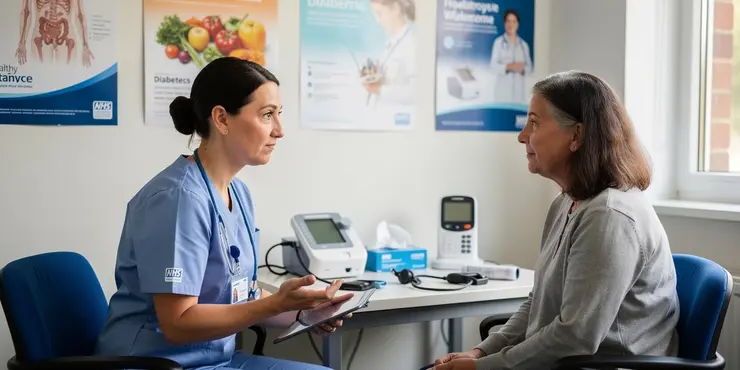
Can I take Ozempic with other diabetes medications?
Relevance: 31%
Sarah & Glinys Managing Diabetes into Remission
Introduction
In January 2019, Sarah and Glinys embarked on a remarkable journey towards managing type 2 diabetes and successfully bringing it into remission. Their story serves as an inspiring testament to the power of lifestyle changes and determination. This journey is particularly relevant for people in the United Kingdom, where diabetes prevalence is a growing health concern.
The Challenge of Diabetes
Diabetes, especially type 2, is a chronic condition characterized by high blood sugar levels due to insulin resistance or insufficient insulin production. It can lead to severe health complications if not managed properly. For Sarah and Glinys, the diagnosis was a wake-up call, motivating them to seek effective strategies for better health.
Adopting a Healthier Diet
One of the key components of Sarah and Glinys's success was transforming their diet. They shifted away from processed foods and high-sugar items, incorporating more whole foods, such as vegetables, fruits, lean proteins, and whole grains. This change was essential in maintaining stable blood sugar levels and achieving weight loss, which is crucial for diabetes remission.
Physical Activity and Exercise
Regular physical activity played a crucial role in their journey. Sarah and Glinys incorporated both aerobic exercise, such as brisk walking and cycling, and strength training into their routine. Exercise helps increase insulin sensitivity, allowing the body to use glucose more effectively, thus lowering blood sugar levels.
Support and Monitoring
Support from healthcare professionals, family, and friends was vital for Sarah and Glinys. Regular monitoring of blood sugar levels helped them stay on track and make necessary adjustments to their regimen. They also participated in diabetes education programs, which provided valuable knowledge and resources.
Conclusion
By January 2019, Sarah and Glinys managed to bring their diabetes into remission through dedication to a healthier lifestyle and continuous support. Their story highlights the importance of proactive diabetes management and offers hope to many others facing similar challenges in the UK. If you or someone you know is living with diabetes, consider exploring these steps towards a healthier future.
Sarah & Glinys Managing Diabetes into Remission
Introduction
In January 2019, Sarah and Glinys started a special journey to manage their type 2 diabetes. They worked hard and got their diabetes into remission. This means their diabetes is under control without needing lots of medicine. Their story shows how lifestyle changes and determination can help. Many people in the UK have diabetes, so their story is important.
The Challenge of Diabetes
Type 2 diabetes is a long-term illness. It means having too much sugar in the blood. It happens because the body doesn't use insulin properly or doesn't make enough insulin. If not treated, it can cause serious health problems. When Sarah and Glinys found out they had diabetes, it made them want to make changes and get healthier.
Adopting a Healthier Diet
Sarah and Glinys changed how they ate. They stopped eating a lot of processed and sugary foods. Instead, they ate more real foods like vegetables, fruits, lean meats, and whole grains. These foods helped keep their blood sugar stable and helped them lose weight, which is important for controlling diabetes.
Physical Activity and Exercise
Exercise was important for Sarah and Glinys. They did activities like brisk walking, cycling, and lifted weights. Exercise helps the body use insulin better, which lowers blood sugar levels.
Support and Monitoring
Help from doctors, family, and friends was very important for Sarah and Glinys. They checked their blood sugar often to make sure they stayed on track. They also joined diabetes education programs that gave them helpful information and resources.
Conclusion
By January 2019, Sarah and Glinys had their diabetes under control because they lived healthier lives and had strong support. Their story shows how important it is to actively manage diabetes. It gives hope to others facing the same problem in the UK. If you know someone with diabetes, these steps might help them too.
Frequently Asked Questions
What is diabetes remission?
Diabetes remission means that your blood glucose levels are below the diabetes range without the need for diabetes medication. This can be achieved through lifestyle changes like diet and exercise.
Can diabetes be cured?
Currently, there is no cure for diabetes. However, achieving and maintaining remission can help manage the condition effectively and reduce the risk of complications.
What diet is recommended for achieving diabetes remission?
A diet low in carbohydrates and calories, focusing on whole foods like vegetables, lean proteins, and healthy fats, can help manage blood glucose levels and potentially bring diabetes into remission.
Is exercise important for managing diabetes?
Yes, regular physical activity helps improve insulin sensitivity, aids weight control, and enhances overall well-being, all of which are important for managing diabetes.
Can weight loss help with diabetes remission?
Yes, significant weight loss, especially in individuals who are overweight or obese, can improve blood glucose levels and increase the likelihood of achieving diabetes remission.
How can I monitor my progress towards diabetes remission?
Regular monitoring of blood glucose levels, maintaining a food diary, and working closely with your healthcare provider are essential for tracking progress and making necessary adjustments.
Should I stop taking my diabetes medication if I achieve remission?
You should never stop taking medication without consulting your healthcare provider. They will guide you through any changes in your treatment plan as you work towards remission.
How long does it take to achieve diabetes remission?
The time it takes to achieve remission varies for each individual. It may take several months of committed lifestyle changes, including diet and exercise, before reaching remission.
Can type 1 diabetes go into remission?
Type 1 diabetes is an autoimmune condition and currently, remission is not typically achievable. However, type 2 diabetes, which is often related to lifestyle factors, has greater potential for remission.
Is there a specific plan or program for managing diabetes into remission?
Plans like the 'Diabetes UK Low-Calorie Diet' or other structured weight management programs may support the remission process. Consult your healthcare provider for a tailored approach.
Are there any risks associated with trying to achieve diabetes remission?
While aiming for remission is generally beneficial, drastic changes without medical supervision can pose risks. It's crucial to work with healthcare professionals to ensure a safe and effective approach.
How does stress affect diabetes remission?
Stress can increase blood glucose levels and make diabetes harder to manage. Finding ways to reduce and manage stress is important for those attempting to achieve remission.
Is diabetes remission permanent?
Diabetes remission is not necessarily permanent. Stopping the healthy habits that led to remission can cause diabetes to return. Ongoing management is crucial.
Can remission of diabetes prevent complications?
Achieving and maintaining remission can reduce the risk of diabetes-related complications, such as heart disease, nerve damage, and eye issues. It leads to overall better health outcomes.
Who should I talk to about managing diabetes into remission?
Your GP, a diabetes nurse, or a dietitian can provide guidance and support tailored to your individual needs. It's important to have a healthcare team to assist you in this process.
What is diabetes remission?
Diabetes is when too much sugar is in your blood. Remission means the sugar levels are normal without medicine.
If someone’s diabetes is in remission, it means they are getting better, and they don’t need as much medicine.
If you want to learn more, use pictures and videos to help. It is okay to ask doctors and nurses questions too.
Diabetes remission means your blood sugar levels are normal without needing medicine. You can do this by eating healthy foods and doing exercise.
Can we make diabetes go away?
Diabetes is a health problem where your body can't use sugar the right way. This can happen because your body does not make enough of something called insulin or it does not use insulin well. Insulin helps turn sugar from food into energy.
Right now, there is no way to make diabetes go away forever. But you can take care of it! Here are some ways to manage diabetes:
- Eat healthy foods like fruits, vegetables, and whole grains.
- Exercise every day. This can be fun like playing outside, dancing, or walking.
- Take medicine if the doctor says you need it.
- Check your blood sugar levels with a special tool. The doctor or nurse can show you how.
You can ask grown-ups for help if you need it. Doctors, nurses, and family can help you stay healthy. Remember, you are not alone!
Right now, we can't make diabetes go away completely. But, we can make it better by taking good care of it. This helps keep you healthy and stops other problems from starting.
What foods can help make diabetes better?
People with diabetes can sometimes make it better by eating the right foods. Here are some tips:
- Eat lots of vegetables and fruits. They are healthy and good for you.
- Choose whole grains like brown rice or whole wheat bread.
- Eat lean meats like chicken and fish.
- Include beans and lentils in your meals. They are full of healthy nutrients.
- Drink plenty of water instead of sugary drinks.
- Try not to eat too much sugar and sweet treats.
Remember to talk to a doctor or a dietitian. They can help find the best plan for you.
Using a food diary or app can help keep track of what you eat every day.
Eating less sugar and less food that gives you lots of energy can help make diabetes better. Try eating lots of vegetables, lean meats like chicken or fish, and healthy oils. This can help keep your blood sugar normal and might even make diabetes go away for some people.
Is exercise important for managing diabetes?
Exercise helps people with diabetes feel better. It can help control sugar levels in the blood. Moving your body is good for your health. Here are some tips:
- Go for a short walk each day.
- Play fun games that involve moving, like tag or dancing.
- Ask a friend or family member to join you.
- Try using a step counter to track how much you walk.
Always talk to your doctor before starting a new exercise routine. They can help make sure it's safe for you.
Yes, moving your body regularly helps your body use insulin better. It can also help you keep a healthy weight and feel good. These are all important things to help manage diabetes.
Can losing weight help stop diabetes?
Sometimes, losing weight can help make diabetes go away for a while.
Here are some ways to lose weight:
- Eat healthy foods like fruits and vegetables.
- Exercise, like walking or playing sports.
- Drink water instead of sugary drinks.
Talk to a doctor or nurse. They can help you make a plan.
Yes, losing a lot of weight can help your blood sugar levels if you are very overweight. It can also make it more likely for diabetes to get better.
How can I check how I am doing with getting better from diabetes?
It is important to check your blood sugar levels often. Keep a notebook to write down everything you eat. It's also good to talk with your doctor to see how you are doing and to make any needed changes.
Should I stop taking my diabetes medicine if I feel better?
If you have diabetes and start feeling better, you might think about stopping your medicine. But it's important to ask your doctor first. They can tell you what is safe for you.
Here are some tips:
- Talk to your doctor: Always check with your doctor before stopping any medicine.
- Regular check-ups: Keep seeing your doctor to make sure you are healthy.
- Use reminders: Use a calendar or alarms to remember to take your medicine.
- Keep a health diary: Write down how you feel every day. This can help your doctor see how you are doing.
Do not stop taking your medicine without talking to your doctor first. Your doctor will help you if you need to change your medicine.
How long until diabetes gets better?
Diabetes remission means feeling much better from diabetes. This can take time and is different for each person. Here are some ideas to help:
- Eat healthy foods.
- Exercise regularly.
- Check your blood sugar often.
- Visit your doctor to get advice.
- Try to follow the plan your doctor gives you.
Remember, it is important to talk to a doctor about your health.
How long it takes to get better from an illness is different for everyone. You might need to spend a few months changing how you eat and getting more exercise to feel better.
Can type 1 diabetes get better?
Type 1 diabetes is when the body can't use sugar the right way. This happens because the body does not make a thing called insulin.
Right now, type 1 diabetes cannot go away or get better. People with type 1 diabetes need to take insulin every day. This helps keep their sugar levels normal.
If you want to learn more, you can ask a doctor. They can give you more help and information.
Type 1 diabetes happens when the body attacks itself by mistake. Right now, you can't make it go away. But type 2 diabetes is different. It's often about how we live, like what we eat and how much we exercise. Type 2 diabetes can sometimes get better or even go away with changes in lifestyle.
Is there a plan to help make diabetes better?
There are ways to help people with diabetes feel better.
Some plans include eating healthy food, exercising, and taking medicine.
Doctors can help find the right plan for each person.
It is important to have regular check-ups with the doctor.
Tools like phone apps can help track how you are doing.
It is always good to ask questions if you need help.
Eating plans like the 'Diabetes UK Low-Calorie Diet' or other special weight programs might help you feel better. Talk to your doctor to find out what's best for you.
Is it safe to try to make diabetes go away?
There can be some risks when trying to make diabetes go away. It's important to talk to your doctor first.
Helpful Tips:
- Ask your family or friends to help you understand.
- Use pictures or drawings to make things clearer.
- Take your time and go slowly.
Trying to get better is good, but big changes without talking to a doctor can be risky. It's important to work with doctors to stay safe and healthy.
How does stress affect getting better from diabetes?
When you feel worried or stressed, it can make diabetes harder to manage. Stress can make your blood sugar levels go up. This can make it harder for your body to get better from diabetes.
If you feel stress, here are some ways to help:
- Take deep breaths to calm down.
- Talk to a friend or family member about how you feel.
- Do something you enjoy, like drawing or listening to music.
- Ask a doctor or nurse for help when you feel stressed.
These steps can help you stay calm and make it easier for your body to heal.
Feeling worried or stressed can make your blood sugar go up. This can make diabetes harder to handle. It is important to find ways to feel calm and less stressed to help manage diabetes better. Try things like deep breathing, going for a walk, or talking to someone you trust.
Can diabetes go away forever?
Diabetes is a sickness where your body has trouble with sugar. Sometimes, diabetes can get better, and you might feel like it is gone. This is called "remission." But, we don't know if it goes away forever. It's important to keep checking your health with your doctor to be safe.
Things that can help:
- Eat healthy food.
- Exercise or play outside.
- Take your medicine if the doctor gives you any.
- Visit your doctor for check-ups.
Diabetes going away might not last forever. If you stop doing the healthy things you did to make it go away, the diabetes can come back. It's important to keep taking care of yourself.
Can stopping diabetes problems help you stay healthy?
Staying in remission means your diabetes is under control. This can lower the chances of having more health problems like heart issues, nerve pain, or eye troubles. It helps you stay healthier overall.
Who can I speak to about making my diabetes better?
If you want to make your diabetes better, you can talk to a doctor or nurse. They can help you find the best way to feel better.
You can also speak to a dietitian. They know about healthy foods that can help you.
A diabetes educator is another person who can give you advice. They understand a lot about diabetes and ways to manage it.
Friend and family can also be there to support you.
Remember to take it step by step! Using a notebook or app can help keep track of your progress.
Your doctor, a nurse who helps with diabetes, or a food expert can give you help that fits just for you. It’s important to have people to help you with health stuff.
Useful Links
This website offers general information and is not a substitute for professional advice.
Always seek guidance from qualified professionals.
If you have any medical concerns or need urgent help, contact a healthcare professional or emergency services immediately.
Some of this content was generated with AI assistance. We’ve done our best to keep it accurate, helpful, and human-friendly.
- Ergsy carfully checks the information in the videos we provide here.
- Videos shown by Youtube after a video has completed, have NOT been reviewed by ERGSY.
- To view, click the arrow in centre of video.
- Most of the videos you find here will have subtitles and/or closed captions available.
- You may need to turn these on, and choose your preferred language.
- Go to the video you'd like to watch.
- If closed captions (CC) are available, settings will be visible on the bottom right of the video player.
- To turn on Captions, click settings .
- To turn off Captions, click settings again.
More Items From Ergsy search
-

Sarah and Glinys Managing Diabetes into remission Jan2019
Relevance: 100%
-

Can Type 2 Diabetes go away?
Relevance: 62%
-

How to manage type 2 diabetes
Relevance: 53%
-

Type 1 Diabetes supporting adults to manage Type 1 diabetes
Relevance: 52%
-

Is Wegovy used for type 2 diabetes management?
Relevance: 48%
-

Where can I find support for managing Type 2 Diabetes in the UK?
Relevance: 47%
-

What role does GLP-1 play in diabetes management?
Relevance: 44%
-

What Is Type 2 Diabetes? | 2 Minute Guide | Diabetes UK
Relevance: 43%
-

How is Type 2 Diabetes treated?
Relevance: 39%
-

What is type 1 diabetes?
Relevance: 37%
-
What is type 1 diabetes?
Relevance: 37%
-

Gestational diabetes | NHS
Relevance: 36%
-

Improving outcomes for people with diabetes
Relevance: 36%
-

Diabetic Foot Conditions Podiatrist
Relevance: 35%
-

Derbyshire Diabetic Eye Screening - Diabetic Eye Screening
Relevance: 35%
-

Gestational Diabetes during pregnancy
Relevance: 35%
-

Diabetes Eye Screening
Relevance: 35%
-

Is Type 2 Diabetes hereditary?
Relevance: 34%
-

Can stress affect my Type 2 Diabetes?
Relevance: 34%
-
Is there a genetic predisposition to type 1 diabetes?
Relevance: 34%
-

Is Ozempic suitable for type 1 diabetes?
Relevance: 34%
-

Can Type 2 Diabetes be prevented?
Relevance: 34%
-
What is Barbie Doll Diabetes?
Relevance: 34%
-

What is the role of insulin in Type 2 Diabetes?
Relevance: 34%
-

Is Teplizumab used to treat diabetes?
Relevance: 34%
-
Can I have sugar if I am diabetic?
Relevance: 34%
-

Can Mounjaro be used in type 1 diabetes?
Relevance: 34%
-

What complications are associated with Type 2 Diabetes?
Relevance: 33%
-
What is the difference between type 1 and type 2 diabetes?
Relevance: 33%
-

How is Type 2 Diabetes diagnosed?
Relevance: 33%
-

What causes Type 2 Diabetes?
Relevance: 33%
-
What support is available for families dealing with type 1 diabetes?
Relevance: 33%
-

What are the symptoms of Type 2 Diabetes?
Relevance: 32%
-
What are the benefits of early detection of type 1 diabetes?
Relevance: 32%
-

NHS Diabetes Prevention Programme; Preventing Type 2 and improving outcomes for people with diabetes
Relevance: 32%
-

Diabetes Care - Preventing Amputations
Relevance: 32%
-

The NHS Diabetes Prevention Programme story
Relevance: 32%
-

Can exercise help prevent gestational diabetes?
Relevance: 32%
-
Why should I consider screening my child for type 1 diabetes?
Relevance: 32%
-

Can I take Ozempic with other diabetes medications?
Relevance: 31%


